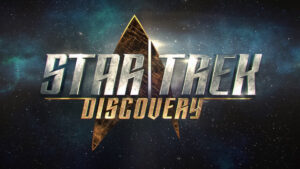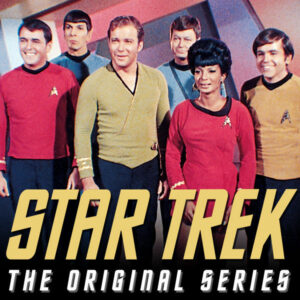 This article contains “Star Trek: Discovery” season four spoilers.
This article contains “Star Trek: Discovery” season four spoilers.
Star Trek has always pulled me in with its continuation of Earth life, parallels to current events and imaginative setting.
The crew of “Star Trek: Discovery,” its newest iteration, continued the “human adventure” on Nov. 18 with season four.
According to the Star Trek timeline, “Discovery” started season one in the 2250’s, 230 years in Earth’s future and about 10 years before “Star Trek: The Original Series.”
At the end of season three, the crew of Discovery finds themselves stranded in the 32nd century, more than 900 years into their future.
“Discovery” stretches from the very beginning to the furthest future that the Star Trek universe has ventured.
Much has transpired in that time.
There have been 13 movies and 11 series with a total of over 800 episodes. In all, there are over 650 hours of science fiction content.
Truly dedicated Star Trek fans, like myself, have spent close to a month of their life immersed in the Star Trek universe.
A progression I have noticed from the old shows to now are the different episode styles.
 “Star Trek: The Original Series” was episodic with a self-contained structure: new discovery, twist and satisfying ending. The newer stuff is serial with more continuity, focusing on overarching storylines and cliffhangers, pulling you through the series and making the week between episodes torture.
“Star Trek: The Original Series” was episodic with a self-contained structure: new discovery, twist and satisfying ending. The newer stuff is serial with more continuity, focusing on overarching storylines and cliffhangers, pulling you through the series and making the week between episodes torture.
Today’s audiences are calling for faster-paced story lines and dramatic special effects.
Much of the fantastic technology posed in the original shows and films are now not merely speculation, but ordinary. Nowadays, imagination is endless and technology to make it come to life is scientifically magical.
It goes to prove the power of visualization as a software to build reality.
Despite these exciting developments, many of the original Star Trek fans have turned away from some of the newer series and movies, saying they are too violent and explicit, taking away the traditional Star Trek morals.
Presenting controversial content is not new to Star Trek. In fact, all the Star Trek writers have discreetly interwoven themes from current affairs.
Roddenberry created a multi-cultural utopia where everyone interacts in peace and works together to solve universal problems, regardless of gender, race, culture, ethical standards, association or antenna.
“Star Trek was an attempt to say that humanity will reach maturity and wisdom on the day that it begins not just to tolerate, but take a special delight in differences in ideas and differences in life forms,” GoodReads quotes Roddenberry.
By flipping the script and shaking people’s stuck bias standards in increasingly blunt ways, Star Trek initiates oft’ uncomfortable change.
Star Trek has helped its viewers process touchy subjects such as civil rights, 9/11, equality and LGBTQ+.
Star Trek’s role as a facilitator of social discussions continues to this day.
Season four of “Discovery” brings in a universal threat.
 An unknown anomaly enveloping planets, moving unpredictably, and bringing fear to all reflects the concerns the world has faced with COVID-19.
An unknown anomaly enveloping planets, moving unpredictably, and bringing fear to all reflects the concerns the world has faced with COVID-19.
“We were looking at what we feel collectively,” said showrunner and co-executive producer Michelle Paradise in an interview with CNET. “What is the emotional experience that we’re all having because of this thing that’s happening globally? Uncertainty is a huge theme for the season.”
The only way to combat this anomaly is for the characters to join together and help each other.
Unfortunately, back in season three, “the burn” made dilithium, the main energy for interstellar warp travel, become inert. Having no way to travel, the galaxy became disconnected and the United Federation of Planets disassembled.
Divided and scared was the state of the universe when Discovery arrived from 900 years in the past.
As the only ship not relying on the depleted dilithium, instead utilizing a new spore drive technology, the crew located the source of the burn and a nebula with a rich supply of dilithium.
In season four, the crew is tasked with reestablishing the United Federation of Planets and Star Fleet Academy to bring peace and connection to the universe after so much loneliness, want, segregation and fear.
In an effort to rekindle old relationships, the federation sets out to bring replacement dilithium to planets that have been cut off by the burn.
The gesture that spoke to me was in episode one, when Michael Burnham chose to remain open to the needs of another species and connect. Instead of taking defensive action after a misunderstanding when under attack on a diplomatic mission, they gained the trust of an understandably wary race.
Do we take the time to look at the wounds of our fellow planetary inhabitants? Do we stop to understand how others have come to their beliefs? Do we have the patience to wait out anger to find the root cause of mistrust?
Trust is the foundation as we rebuild our future world.
United humanities that welcome diversity and seek to heal and facilitate resources are required to ensure the safety and unity for individuals, species, worlds and our universe into the future.

